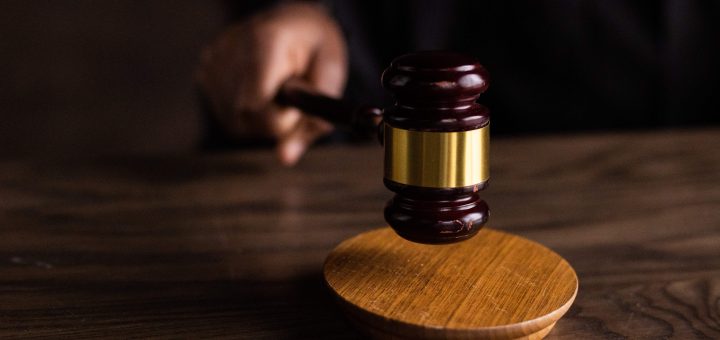R v White: Defence Lawyers’ Mistakes and the Concept of Prejudice

The relationship between an accused and their defence lawyer is a crucial one; the performance of the defence lawyer can determine whether the accused is given the best defence possible during their criminal proceedings. In R v White, 2022 SCC 7 [White SCC], the Supreme Court of Canada (“SCC” or “the Court”) considered whether a defence lawyer’s failure to obtain his client’s instructions for choosing the mode of trial constituted a miscarriage of justice that would require a new trial. Siding with the dissent of the Newfoundland and Labrador Court of Appeal’s (“NLCA” or “the Court of Appeal”) decision in R v White, 2021 NLCA 39 [White], the SCC ruled that a new trial is only warranted if the accused can establish that they suffered from prejudice due to their counsel’s mistake. After exploring the facts and the NLCA and the SCC’s decisions, this case comment will analyze the courts’ approaches to the requirement of prejudice and explain the implications and the importance of that requirement for the criminal justice system.
Facts and Background
During the summer of 2018, Trent White was aboard his commercial fishing vessel near Rocky Harbour, Newfoundland and Labrador, with Jessica Decker, his partner, and three other crew members. While returning to shore, Mr. White attempted to throw Ms. Decker overboard into the ocean (White, paras 2 and 27). Ms. Decker managed to grab hold of the side of the vessel. She was eventually helped back on board by two of the other crew members (White, paras 2 and 28). None of the other crew members on the vessel saw the incident (White, para 2).
At trial, the Crown relied on the evidence of the three crew members but did not call Ms. Decker as a witness (White, para 3). Mr. Matthews, Mr. White’s counsel, also did not call Ms. Decker as a defence witness despite his client’s request to do so. Mr. White was subsequently convicted of assault, aggravated assault, and damage to property under the Criminal Code, R.S.C., 1985, c. C-46 (White, para 1). Afterwards, Mr. White retained new counsel and successfully had his case re-opened before the sentencing judgement (White, para 3). At the new trial, Ms. Decker testified. Nevertheless, the judge at the new trial concluded that Mr. White was guilty of all charges (White, para 34). Mr. White then retained a third lawyer and appealed to the NLCA, alleging that Mr. Matthews failed to provide competent representation as he “failed to obtain Mr. White’s informed instructions regarding his election as to mode of trial” (White, paras 4 and 35). This claim was the sole issue on appeal (White, para 4).
The NLCA’s Majority Decision
Procedural Issues and Principles of Law
Justice Welsh, writing for the majority, first addressed the salient procedural issues. The majority noted that although an application is normally required to admit fresh evidence, affidavits from the appellant and trial counsel could be admitted without consideration of the factors that ordinarily apply to the admission of fresh evidence (White, para 6). In addition, the Court of Appeal could grant intervenor status to trial counsel if they requested such status so that they can respond to the allegations (White, para 7).
The majority then referred to R v G.D.B., 2000 SCC 22 [G.D.B.] for guidance around approaching issues related to ineffective assistance of trial counsel:
For an appeal to succeed, it must be established, first, that counsel’s acts or omissions constituted incompetence and second, that a miscarriage of justice resulted (White, para 8 citing G.D.B., para 26).
In addition to G.D.B., the majority also cited R v Stark, 2017 ONCA 148 [Stark], which further clarified that a miscarriage of justice could be established in two ways in cases involving allegations of incompetence of trial counsel: first, by showing that “incompetent representation undermine[d] the reliability of the verdict” or second, by showing that “incompetent representation undermined the appearance of the fairness of the trial proceeding” (White, para 10 citing Stark, para 14). For the first option, the appellant must establish prejudice by demonstrating “a reasonable possibility that, but for the incompetence, the verdict could have been different” (White, para 11 citing Stark, para 15). For the second option, the appellant must show that “counsel has made certain decisions that should have been made by the accused person because they relate to the accused person’s fundamental right to control his or her own defence” (White, para 12 citing Stark, para 16). The accused is not required to establish prejudice for the second option (White, para 12).
Application to the Case
In this case, Mr. White filed an affidavit supporting his allegations against Mr. Matthews (White, para 18). However, Mr. Matthews did not file an affidavit in response, did not request intervenor status, and advised the NLCA that he would not participate in the matter (White, para 18). Mr. White swore in his affidavit that Mr. Matthews decided to have his trial take place in Provincial Court without taking any instructions from him, despite his right to choose the mode of trial (White, para 20). The majority noted that the claims in Mr. White’s affidavit were consistent with his testimony given during the cross-examination by Crown counsel.
After considering the consistency between Mr. White’s testimony and his affidavit and the absence of an affidavit from Mr. Matthews, the majority concluded that Mr. White “did not give informed instructions regarding the election as to mode of trial” (White, para 21). As Mr. Matthews did not provide advice and did not seek Mr. White’s instructions, Mr. Matthews “failed to provide competent representation for Mr. White at trial” (White, paras 23-24). The majority concluded that this failure “undermined the fairness of the proceedings and resulted in a miscarriage of justice” and therefore allowed Mr. White’s appeal and ordered a new trial on all the charges (White, paras 24-25).
The NLCA’s Dissenting Judgement
The dissenting opinion of Justice Hoegg emphasized the significance of the second prong of the test from G.D.B., i.e., whether the accused suffered from a miscarriage of justice and experienced prejudice. To rule on the issue of prejudice in this particular case, Justice Hoegg considered the nature of the relationship between counsel and an accused and determined that an accused would have to “demonstrate trial prejudice or serious prejudice as a result of counsel’s conduct in order to obtain a new trial” (White, para 50). Justice Hoegg explained that each mode of trial is “established to be … a fair process able to produce a just result” and that it would be an unfair slander on the criminal justice system if she found that prejudice could result from choosing one mode of trial over another (White, para 57). If Mr. Matthews did err by choosing the mode of trial without his client’s instructions, that error did not cause prejudice to Mr. White (White, para 57).
Justice Hoegg also clarified that preventing an accused from exercising his right to choose the mode of trial is not equivalent to the accused not having the benefit of advice from counsel on making the best choice (White, para 59). Justice Hoegg interpreted Mr. White’s argument to be that counsel prevented him from exercising his right to choose because Mr. Matthews did not advise him about his choices.
Justice Hoegg’s overall view was that “all mistakes do not have the same, or equal, effect” and that the law demands “not procedurally perfect justice, but fundamentally fair justice” (White, para 63). In conclusion, because Mr. White had not proved that he experienced prejudice that warranted a new trial, Justice Hoegg determined that Mr. White received fundamentally fair justice and, accordingly, would have denied the appeal (White, para 64).
SCC Decision
The Crown appealed the NLCA majority decision to the SCC. On behalf of a unanimous bench, Justice Karakatsanis delivered an oral judgement. Although the SCC recognized that the right to elect the mode of trial is an important right of the accused, the Court found that Mr. White had not shown that he experienced a miscarriage of justice (White SCC, 3). In support of its position, the SCC pointed out that Mr. White failed to state that he would have chosen a different mode of trial had counsel informed him of his right to choose.
The SCC held that “Mr. White’s request for a new trial cannot succeed on the basis of an appearance of unfairness” (White SCC, 5). In other words, Mr. White had not met the high standard for establishing a miscarriage of justice, i.e., the error must have been “so serious that it shakes public confidence in the administration of justice” (White SCC, 5 citing R v Davey, 2012 SCC 75 [Davey], para 51). The SCC allowed the Crown’s appeal and sent the matter back to the Court of Appeal to address Mr. White’s remaining unaddressed grounds of appeal.
Analysis: The Implications and the Importance of the Prejudice Requirement
The conflicting opinions between the NLCA majority and Justice Hoegg and the SCC were largely due to the courts’ different approaches to the concept of prejudice. The NLCA majority did not require prejudice for establishing a miscarriage of justice if an accused could successfully argue that their counsel made a decision on their own that negated “the accused person’s fundamental right to control his or her own defence” (White, para 12 citing Stark para 16). The NLCA majority used this avenue to rule in favour of Mr. White, as Mr. Matthews did not take his client’s instruction and did not allow Mr. White to “control” his defence. Even though Mr. White did not establish clear prejudice, Mr. Matthew’s error of not taking instructions from his client nevertheless “undermined the fairness of the proceedings” and was enough to find that a miscarriage of justice occurred (White, para 23).
In contrast, Justice Hoegg placed great emphasis on the need to establish prejudice in order to find a miscarriage of justice. By doing so, Justice Hoegg advocated for courts to set a high bar for granting an accused party a new trial due to their counsel’s errors. The SCC affirmed Justice Hoegg’s opinion, confirming that demonstrating ineffective assistance of counsel has a “prejudice component” in addition to a “performance component” (White SCC, 4). In my opinion, a stringent bar that requires an accused to establish prejudice is appropriate and necessary. Even if an accused was unable to exercise one of their rights, it is insignificant if they did not experience a material disadvantage, i.e., prejudice, throughout their legal proceedings. What is significant is ensuring that the accused is given a fair trial through a mode of trial allowed under the law. If the accused’s right to a fair trial has been satisfied, courts should not grant allegations of miscarriages of justice; what matters is the end result, not the process leading up to the result.
Taking away the prejudice component could have serious repercussions for the criminal justice system. As Justice Hoegg herself noted, finding that one mode of trial is fairer than another would be “an effective indictment of our criminal justice system” (White, para 57). Based on that point, siding in favour of Mr. White could have sent a message that one mode of trial is vastly favourable to another and thereby harmed the public perception of the effectiveness of our criminal justice system. As we saw when the SCC affirmed that the standard for establishing a miscarriage of justice is showing that “the error [shook] public confidence in the administration of justice,” tarnishing the public perception is an unacceptable outcome (White SCC, 5 citing Davey, para 51). In addition, allowing for a new trial when the accused party has not established prejudice may open the floodgates to numerous miscarriage of justice claims based on the ineffective assistance of counsel and put an unnecessary strain on court resources.
The only questionable line of reasoning that Justice Hoegg made was equating Mr. Matthew’s failure to provide advice with Mr. Matthew’s failure to get his client’s instructions on which mode of trial to choose. Although I agree with Justice Hoegg that not receiving advice is not the same as being prevented from choosing the mode of trial, it seems that Mr. Matthews allegedly committed two separate errors: Mr. Matthews failed to provide advice, then he failed to obtain instructions from Mr. White. Even without advice, Mr. White could have, in theory, given his counsel express instructions on which mode of trial to choose. The SCC, on the other hand, seemed to differentiate between the two errors while still agreeing with Justice Hoegg that the accused did not meet the high standard for establishing a miscarriage of justice. In the end, the SCC affirmed Justice Hogg’s decision and, in turn, guarded the public perception and efficiency of the criminal justice system while ensuring that courts can still protect accused parties’ right to a fair trial.








Join the conversation